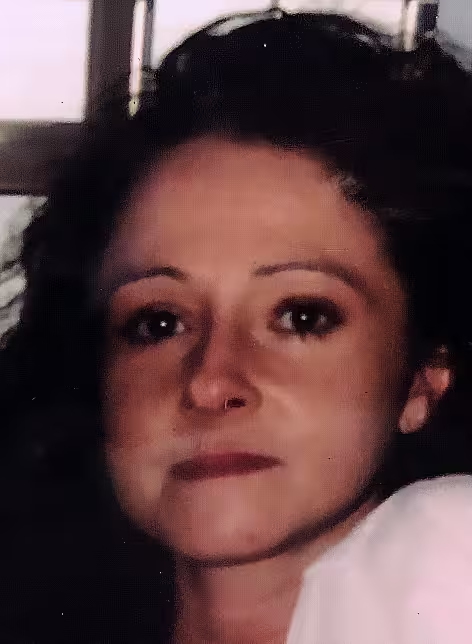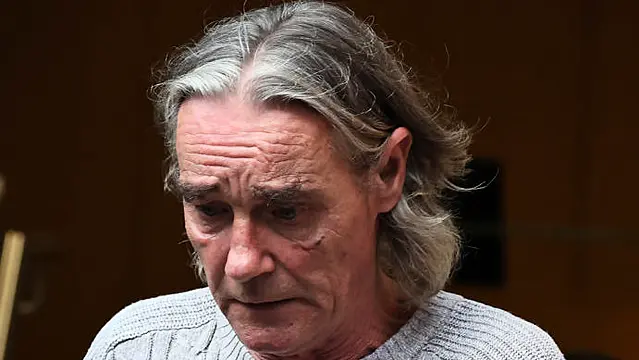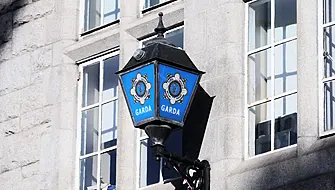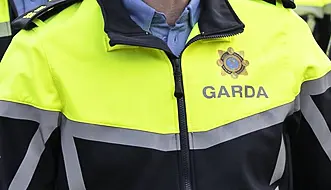A Limerick man has told an inquest into the death of a woman from fatal burns injuries that claims that he had set her on fire were “not true”.
Kenneth Hynes rejected allegations that he had poured liquid on the legs of his partner, Martina Kiely, before setting her alight when he appeared as a witness at a sitting of Dublin District Coroner’s Court.
Ms Kiely (48), a mother of one from Shanabooley Road, Ballynanty, Limerick, suffered 47 per cent burns to her body in a fire at her home on August 2nd, 2019, and died almost 17 months later from complications of her injuries at St James’s Hospital in Dublin on December 31st, 2020.
The original hearing of the inquest into her death was adjourned in February 2023 after it emerged that Ms Kiely had told gardaí and family members before she died that she had been set alight by Mr Hynes.
At a resumed hearing on Tuesday, the deceased’s former partner told the coroner, Aisling Gannon, that he and Ms Kiely had been together for 18 years.

Mr Hynes said he had called to his partner’s house at around 5.30pm on the evening before the fire when they drank cans of Carling and vodka.
He said he went home around an hour later after leaving Ms Kiely talking to her sister, Ann.
The witness said the two women were later seen driving to an off-licence to get more drink.
Mr Hynes said Ms Kiely rang him later at 11.55pm to ask him to come back to her house but he declined.
He was subsequently woken by a neighbour at around 3am to alert him to the fire in his partner's house.
Mr Hynes said he tried to get into the house but was stopped by gardaí.
Questioned about his evidence by the coroner, Mr Kiely remarked: “Am I a suspect here?”
Asked about the claims that he had set the deceased on fire, he replied: “That’s not true.”
He added: “I just do not believe that Martina said that about me.”
Asked by his former partner’s brother, Noel Kiely, how often he had visited her in hospital in Dublin, Mr Hynes said he had gone to St James’s two days after the fire.
He told the coroner that he got the impression his partner’s family did not want him there, so he did not visit her again.
“I’d more right to be there than anybody else,” said Mr Hynes, who added that he was “devastated” to learn of her death.
During his evidence, the deceased’s sister, Geraldine Morrissey, twice retorted: “Liar.”
In earlier evidence, Ms Morrissey said she had been very close to her sister, although they had become distant when Ms Kiely began drinking heavily.

She told the coroner that her sister, at a time she was unable to speak, had passed her a handwritten note when she visited her in hospital on October 19th, 2019, which stated: “Kenneth Hynes did this to me.”
Ms Morrisey said her sister had subsequently emphasised to her a number of times what Mr Hynes had done when her voice returned.
Her brother told the inquest he had shown gardaí in Limerick his sister’s handwritten note on October 21st, 2019.
Mr Kiely said his sister had “never deviated” from what she had said about Mr Hynes and had “never added or subtracted” to details about what he had done to her.
He also expressed concern that the back door of his sister’s terraced house, which backed onto neighbouring properties and Thomond Park, was closed but unlocked and noted that Mr Hynes lived just a short distance away.
Mr Kiely pointed out that his sister was not wearing any clothing on her legs at the time of the fire and had remained conscious during the incident.
“It’s difficult to understand how she sustained such serious injuries when she was conscious,” he added.
Relatives of the deceased also alerted the coroner to a report by paramedics which had noted that there was “a greasy substance” on Ms Kiely’s legs when they treated her.
The inquest had previously heard that a Garda investigation into Ms Kiely’s death had concluded that there was no foul play or anything suspicious in relation to the fire.
Detective Garda Seán O’Hagan gave evidence of visiting Ms Kiely in hospital on February 20th, 2020, to take a statement from her but found she was very confused about events on the night of the fire.
Det Garda O’Hagan said he formed the view that she was unfit to make a statement despite making three attempts to do so and that he was unable to get one from her at a later date due to Covid-19 restrictions on visiting hospitals.
He confirmed that a cigarette and lighter was found in the deceased’s bedroom and that there was no sign of any disturbance.
Det Garda O’Hagan said Ms Kiely was found sitting with her knees up next to the seat of the fire immediately inside the door of an upstairs bedroom.
He also informed the coroner that gardaí had been called to the house twice several years previously about incidents of domestic violence but that no offence had been disclosed.
In reply to questions from Ms Gannon, Det Garda O’Hagan said Ms Kiely had given him a number of different versions of events and she had a “level of confusion.”
A forensic scientist, Lorna Corr, of Forensic Science Ireland, who examined a sample of debris from the fire collected by a scenes-of-crime specialist, told the inquest she had found no evidence of any accelerant.
However, Mr Kiely interjected to state that his sister had claimed that liquid was poured on her legs, which were both subsequently amputated.
“It would not be a surprise that nothing was found,” he added.
The inquest heard Ms Kiely had discharged herself from University Hospital Limerick a few days before the fire against medical advice after sustaining injuries in a fall which occurred after she suffered a seizure while drinking alcohol.
Evidence was also provided that the deceased had been conscious when she was first brought to University Hospital Limerick after the fire.
Dr Gannon observed that she was sure that it would have been recorded by hospital staff if Mr Kiely had provided any detail at the time about what had happened.
Detective Sergeant Shane Ryan, who reviewed the case, said gardaí had treated the fire as a criminal investigation from the outset and its primary focus had become the note written by the deceased.
However, he said there was a recommendation that there should be no prosecution after he had forwarded a file to the DPP and the case was now closed.
Under questioning Det Sgt Ryan said Mr Hynes’ alibi about being at home around 3am had been corroborated by another witness.
However, he accepted that gardaí were unable to verify where the deceased’s partner was earlier that night.
“There is only so far you can bring an inquiry,” he remarked.
Ms Gannon said nobody would ever know precisely what had occurred but she believed the fire, on the balance of probabilities, was accidental.
Mr Kiely replied that his family would accept the coroner’s verdict as they understood she had to go on facts established at the inquest.
However, he added: “Nothing will ever change what we know and what we feel.”
The coroner returned a narrative verdict based on the evidence which included details of what Ms Kiely had told her family about her partner.







